
Culture
20:05, 22-Aug-2017
Documentary on surviving wartime sex slaves touches whole nation
By Yang Yan
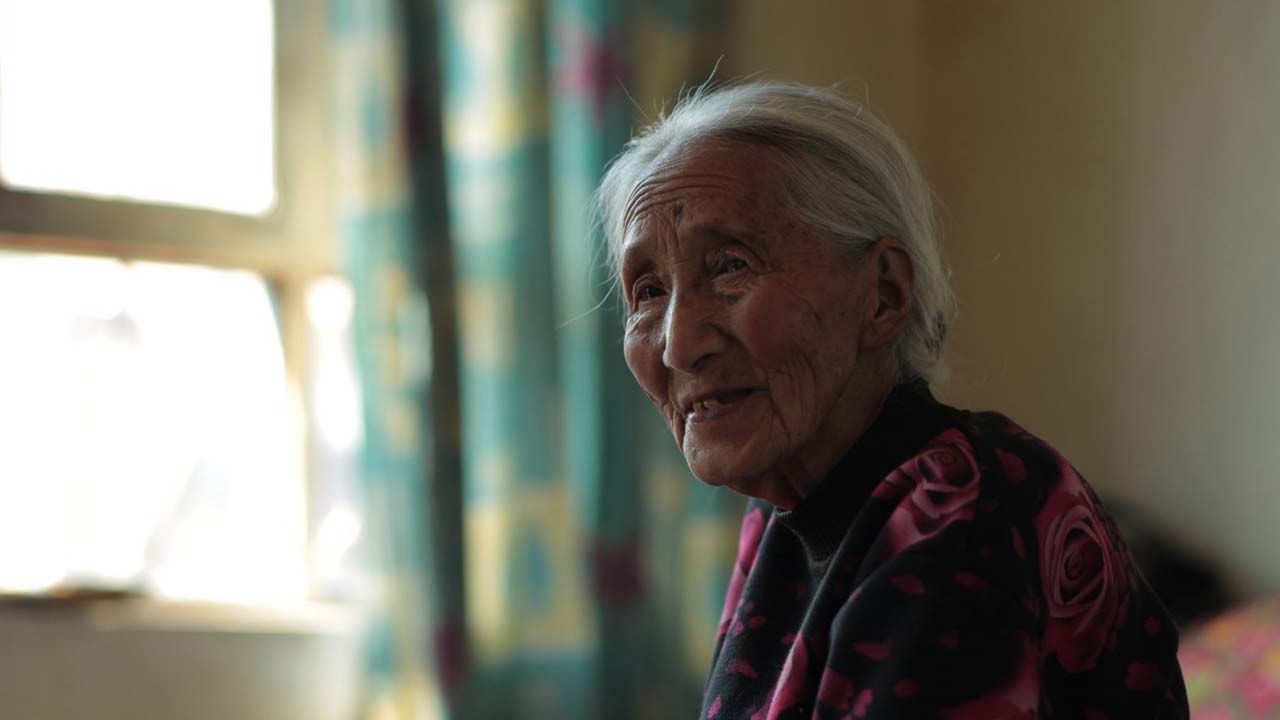
A documentary on Chinese victims of Japanese wartime sex slavery hit cinemas around China this month. It is the first time this kind of film has been approved for the big screen.
"Twenty Two," directed by Guo Ke, records the daily life of 22 surviving "comfort women" and their experiences during World War Two.
"Comfort women" is a Japanese euphemism for sex slaves.
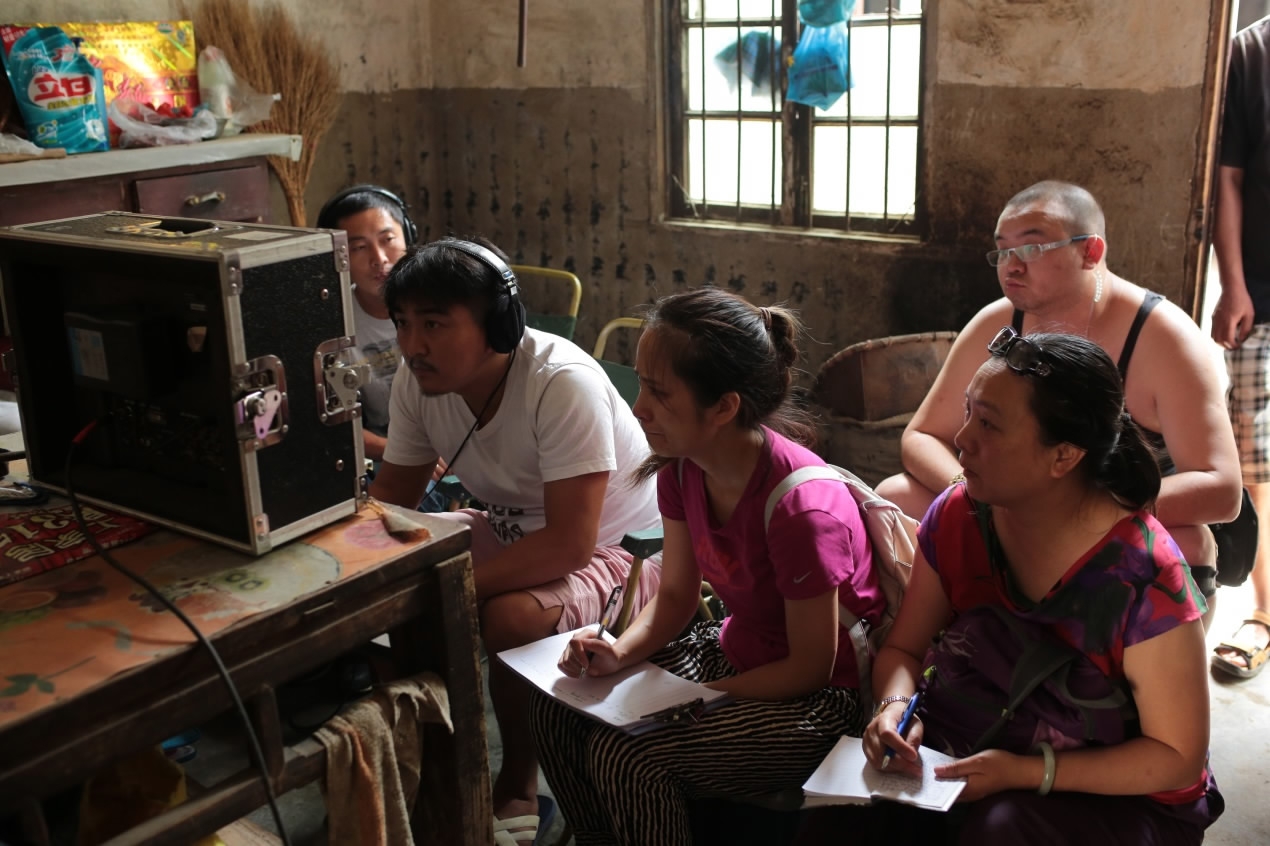
Director Guo Ke reviewing the footage. /Handout photo by the crew
Director Guo Ke reviewing the footage. /Handout photo by the crew
"Twenty Two" set a box office record for documentaries in China, topping a hundred million yuan, about 15 million US dollars.
Wei Shaolan was the first sex slave survivor Guo Ke met. Her story and optimistic attitude towards life inspired him to make his first documentary "Thirty Two" in 2012. At that time, there were 32 women who had made their identities public.
Ke said his encounter with Wei Shaolan changed his original concept of "comfort women".
"Before it was painful, sad and scared, I thought they lived in pain every day. Instead 90-year-old Wei Shaolan was smiling every day. She told me 'The world is so beautiful and I want to live'. After talking to all of them and getting to know their lives, I found they are truly alive, living life. At that moment I felt so strongly that we need to know more about them, and I hope more people become aware of them. And as we know, they will soon leave this world, so I decided to record their lives," said Guo.
In 2014, he began shooting the companion documentary. Ke traveled to five provinces for the next three years to record the stories of the remaining 22 women still alive.
Some 400,000 women and girls in Asia were forced to serve as sex slaves for Japanese troops before and during World War Two. Nearly half of them were Chinese.
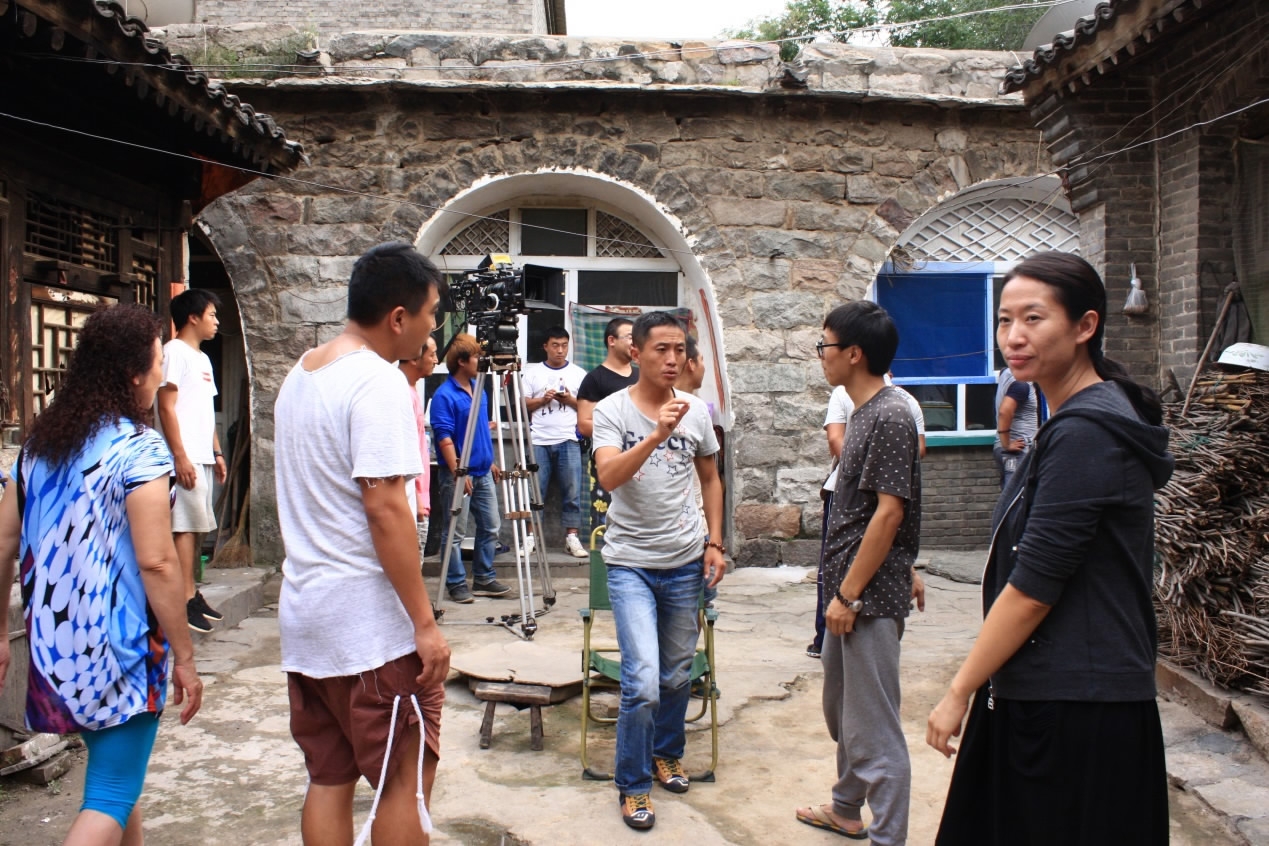
Crew members talking about shooting. /Handout photo by the crew
Crew members talking about shooting. /Handout photo by the crew
To date, 14 of 22 of the women in the film have passed away. Only eight remain.
One of the women, Huang Youliang, died at her home in China’s southern Hainan island two days before the documentary was released. She was forced into front-line brothels for two years.
In July 2001, Huang and seven other survivors sued the Japanese government for an apology. But Japanese courts have repeatedly rejected such cases, claiming that individuals have no right to sue a state.
For many audience members, the overriding feeling was concern, not anger.
Feng Bin, one of the movie-goers, said that he felt peaceful after watching the film.
"The whole night I was thinking about this issue, the victim group, who will take care of them and who will ensure their lives? This movie wakes up the whole society to the situation of the comfort women. Many of them have passed away. Taking good care of the ones remaining may be the crucial thing," said Feng.
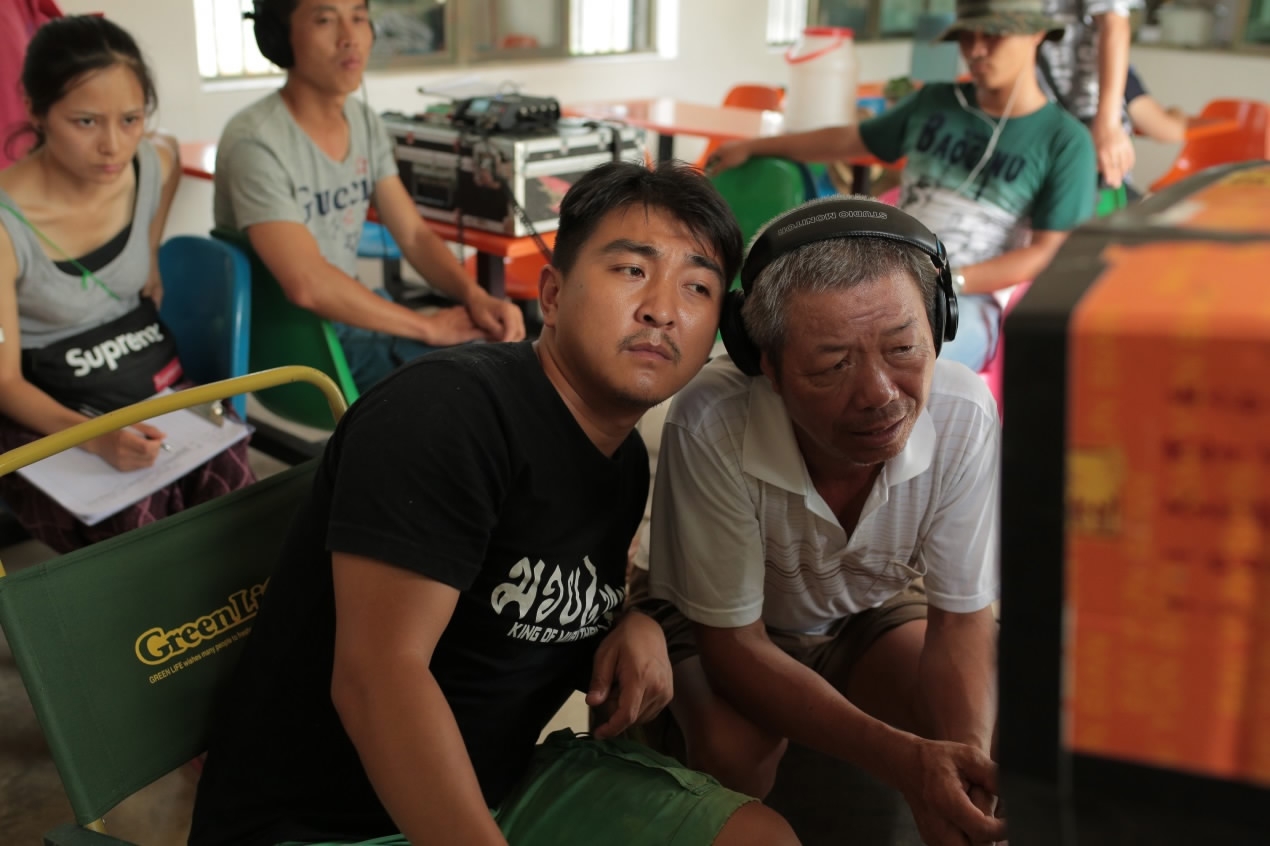
Director Guo Ke reviewing the footage. /Handout photo by the crew
Director Guo Ke reviewing the footage. /Handout photo by the crew
Audiences have been moved by the stories of women like Li Ailian who takes in stray cats and describes taking care of them as the most joyful part of her daily life.
Audiences have asked Guo Ke about the process of shooting and how Guo Ke got so close to the women.
Guo Ke said he treated them as his own grandmas and recorded their life peacefully, instead of repeatedly touching their wounds.
"I followed their tempo, accompanying them, equipment set up at a distance. I tried hard not to disturb their normal lives. Sometimes we talked, like chatting with my own grandma. They told their stories. If they didn't want to talk, I immediately stopped," he said.
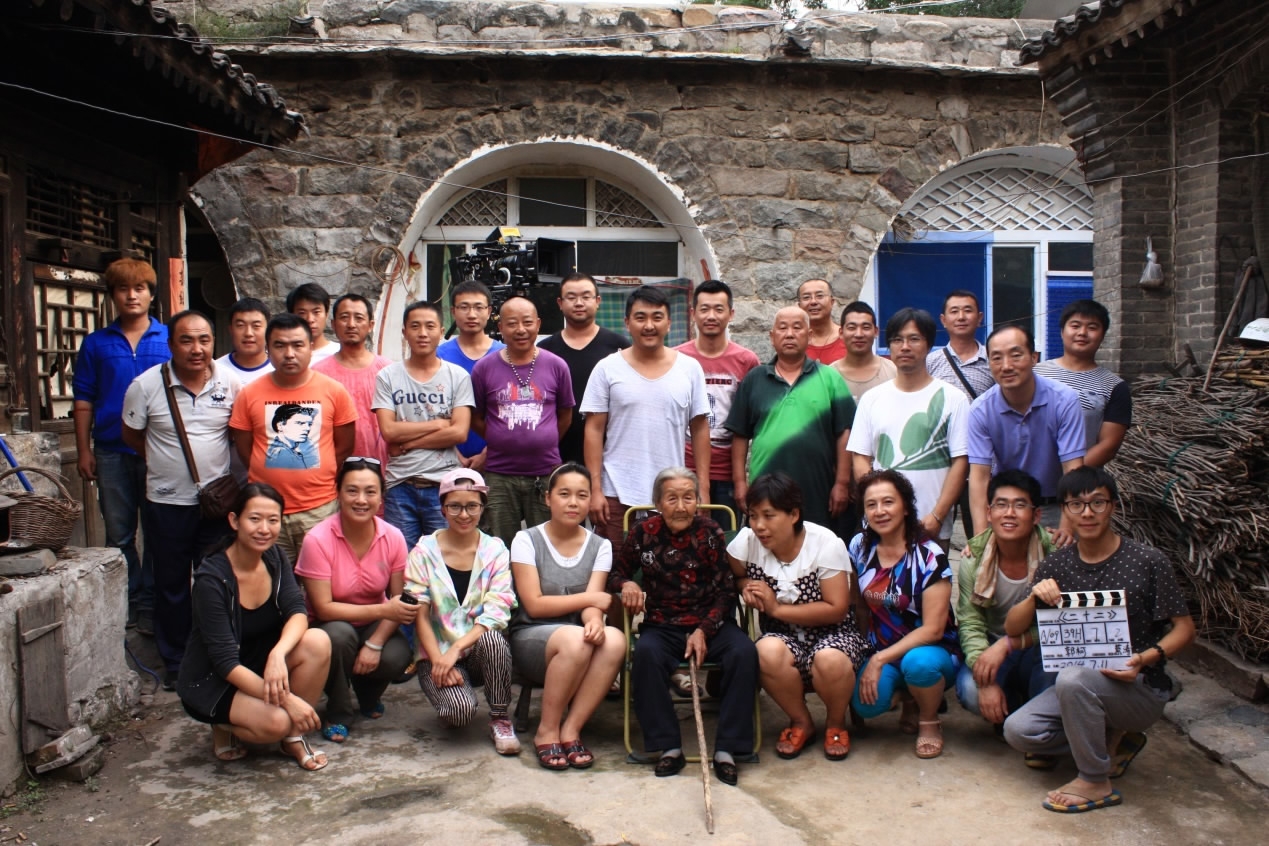
Family photo of the crew. /Handout photo by the crew
Family photo of the crew. /Handout photo by the crew
Documentary "Twenty Two" may be the last video footage of these elderly survivors in their final stage of life. It is a precious historical record. Scholars studying sex slaves have watched the film and hope more people will watch it and get to know these women.
A recent screening of the film was followed by a seminar with director Guo Ke, Cho Jung-rae, director of "Spirits' Homecoming", a South Korean film about comfort women, and Su Zhiliang, director of the "comfort women research center at Shanghai Normal University.
Su remarked, "I noticed that a large number of young people born in the 80s and 90s entering the cinema. The film will have an impact on our attitude towards life. How do we face our life? Look at Wei Shaolan. They suffered so much but still face life strongly and with an open mind. Those women are extraordinary."
Ke visits the remaining women before the Spring Festival every year, and he says he will continue to do so.
The film has proved a surprising hit. Ke said all proceeds will be donated to the research center and be used to help the survivors and relatives of those who have passed away.
5km

SITEMAP
Copyright © 2018 CGTN. Beijing ICP prepared NO.16065310-3
Copyright © 2018 CGTN. Beijing ICP prepared NO.16065310-3